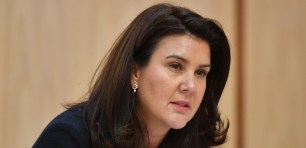
Source: Adobe Stock.
Superannuation will not be added to government-funded parental leave payments, the federal government has confirmed, meaning Australians could miss out on billions of retirement dollars when they step out of the workforce to have kids.
Retirement Income Review chair Mike Callaghan had recommended the change, saying the difference would be “very small [in terms of closing the gender gap] but it’s still worth doing for equity”, and would only cost taxpayers $200 million a year, or less than 1% of the budget.
But Social Services Minister Anne Ruston and several other ministers decided the cost-benefit was too great, although the government did implement a recommendation to scrap the $450 monthly salary threshold, which gave about 200,000 more women access to super.
It means parental leave remains the only form of paid leave that does not involve mandatory super contributions — and with more than 90% of the parental leave taken by women, the cohort is set to feel the brunt of the blow in retirement.
And it’s no chump change. Since the government-funded paid parental leave scheme was introduced a decade ago, about 1.6 million women have taken paid time out of the workforce to have children, meaning they’ve missed out on about $1.86 billion in super so far.
The private sector is stepping in, however, with the Workplace Gender Equality Agency’s (WGEA) latest data showing 81% of employers offering paid parental leave also pay superannuation, though only seven per cent cover the government’s parental scheme.
Eva Scheerlinck, CEO of the Australian Institute of Superannuation Trustees (AIST), says women already retire with 40% less super than men, yet women typically live longer, which is “hardly a recipe for the comfortable retirement that they deserve,” she says.
“They also spend more time out of the workforce doing unpaid work caring for children and other family members, which is even more reason that action should be taken to ensure they don’t fall further behind during career breaks,” Scheerlinck continues.
She says she supported the recent scrapping of the $450 monthly salary threshold, calling it “good news for low-income workers, many of whom are women” but stressed that more needs to be done to level the playing field.
“This includes maintaining the commitment to the legislated increase in the Superannuation Guarantee to 12% by 2025, addressing the gender pay gap, and assessing the level of financial coercion experienced by women through the early release of superannuation scheme.”
The Greens have pledged to invest $24.5 billion over 10 years to provide a 26-week parental leave package, paid at the carer’s replacement wage (pro-rata up to $100,000 annual, with superannuation), with “use it or lose it” provisions to encourage parents to share care more equitably.
The Greens’ deputy Larissa Waters says: “Women do more unpaid family work, including childcare, than men, and they’re punished for it with smaller pay packets, missed promotions, insecure employment, and tiny super balances”.
“Australian women can no longer afford a government that cries poor when it comes to meeting women’s economic needs, while spending billions of dollars on failed military technology and subsidies to their coal and gas donors.”
Handpicked for you

Accountant warns removal of $450 super threshold could increase compliance for small businesses



COMMENTS
SmartCompany is committed to hosting lively discussions. Help us keep the conversation useful, interesting and welcoming. We aim to publish comments quickly in the interest of promoting robust conversation, but we’re a small team and we deploy filters to protect against legal risk. Occasionally your comment may be held up while it is being reviewed, but we’re working as fast as we can to keep the conversation rolling.
The SmartCompany comment section is members-only content. Please subscribe to leave a comment.
The SmartCompany comment section is members-only content. Please login to leave a comment.